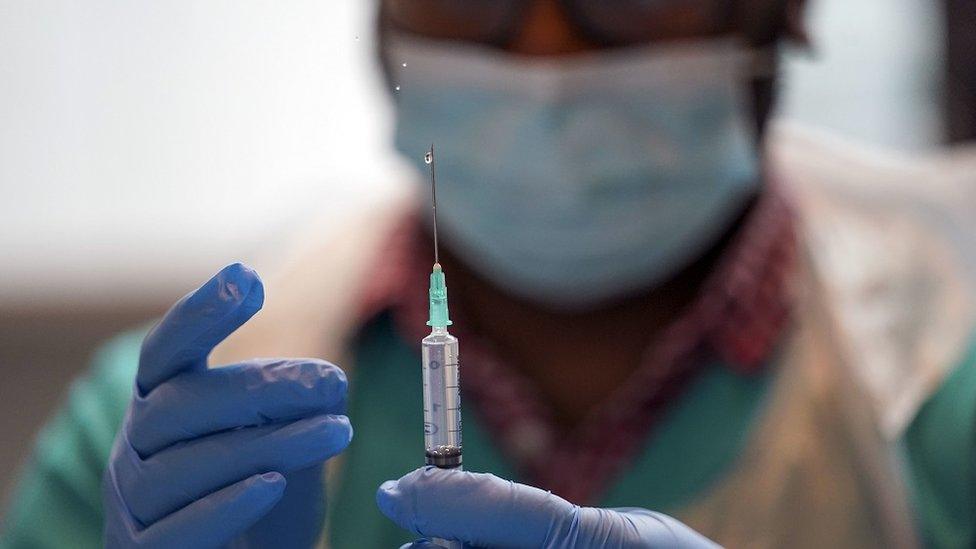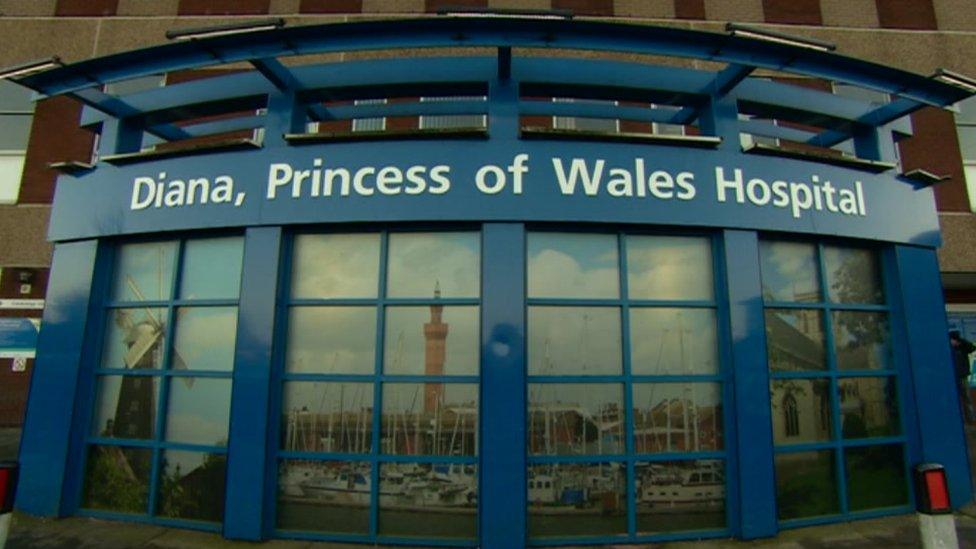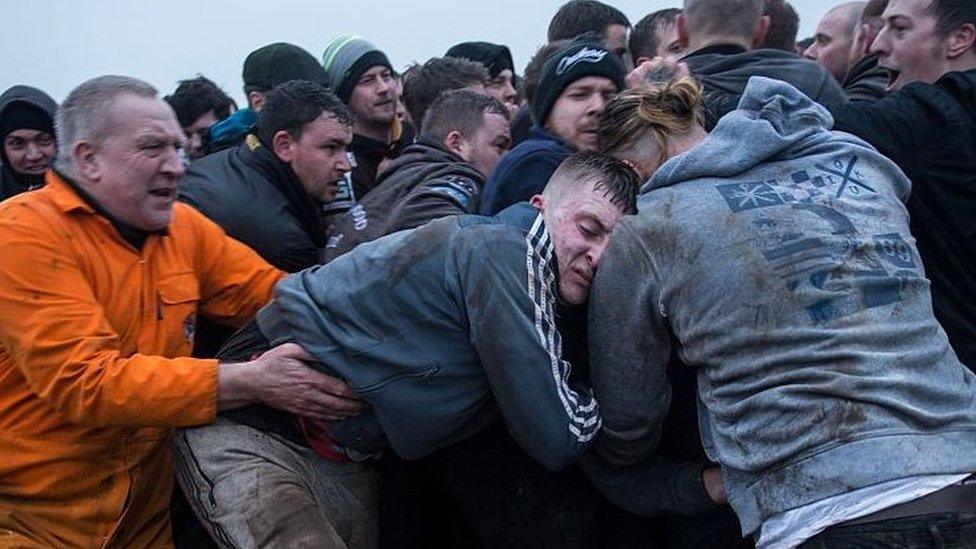Concern over rise in northern Lincolnshire Covid cases
- Published

Tessa Lindfield, North Lincolnshire's public health director urged people to get the vaccination and the booster jab
A huge surge in Covid cases could put hospitals, police and council services under threat, a health expert has warned.
Tessa Lindfield, North Lincolnshire's public health director said the Omicron variant risks forcing large numbers of essential workers to stay at home.
She urged people to get the vaccination and the booster jab.
More than 90% of the area's cases are now thought to be from the new strain, up from 30% at the start of the month.
"Although the Omicron variant appears to be milder, the greater risk is what happens with a lot of cases in a short space of time," said Ms Lindfield.
"We could see lots of people off work, including the staff in our hospitals, the people who deal with crime and who run our everyday public services. This includes people who have tested positive themselves or are looking after others who are ill.
"It is a different sort of harm to the deaths we saw in previous waves, but is still serious."
According to the Local Democracy Reporting Service, North Lincolnshire's Covid rate now stands at 744 per 100,000 residents - more than 50% higher than a week ago.
In neighbouring North East Lincolnshire there has been a 100% increase in infection rates over the last week according to the council's acting public health director Geoff Barnes.
The Covid infection rate is now 835 cases per 100,000 residents.
"Almost all age groups except children have seen significant increases, with young adults in particular seeing the biggest increases overall," said Mr Barnes.
"Of greatest concern however is the increased case rates in people between the age of 60 and 79 which have increased from less than 100 two weeks ago to more than 300 currently.
He urged people to take additional measures to stop the spread over New Year.

There has been an increase in patients arriving at A&E in Grimsby and Scunthorpe
Northern Lincolnshire and Goole NHS Foundation Trust, which runs Grimsby and Scunthorpe hospitals, said it was "experiencing very high levels of demand".
Shaun Stacey from the trust said: "The hospital has seen a sudden rise in people attending with a wide range of symptoms over the last two days.
"Obviously we're seeing a small increase in people attending who have Covid symptoms or are experiencing concern that they may have symptoms.
"But we're seeing all sorts of things - people with tummy troubles, people with chest infections and people who are short of breath."
The trust warned patients of long waits at A&E and asked people to use alternatives, such as the 111 number, if they can.

Follow BBC East Yorkshire and Lincolnshire on Facebook, external, Twitter, external, and Instagram, external. Send your story ideas to yorkslincs.news@bbc.co.uk, external.
- Published29 December 2021

- Published5 October 2021

- Published2 April
